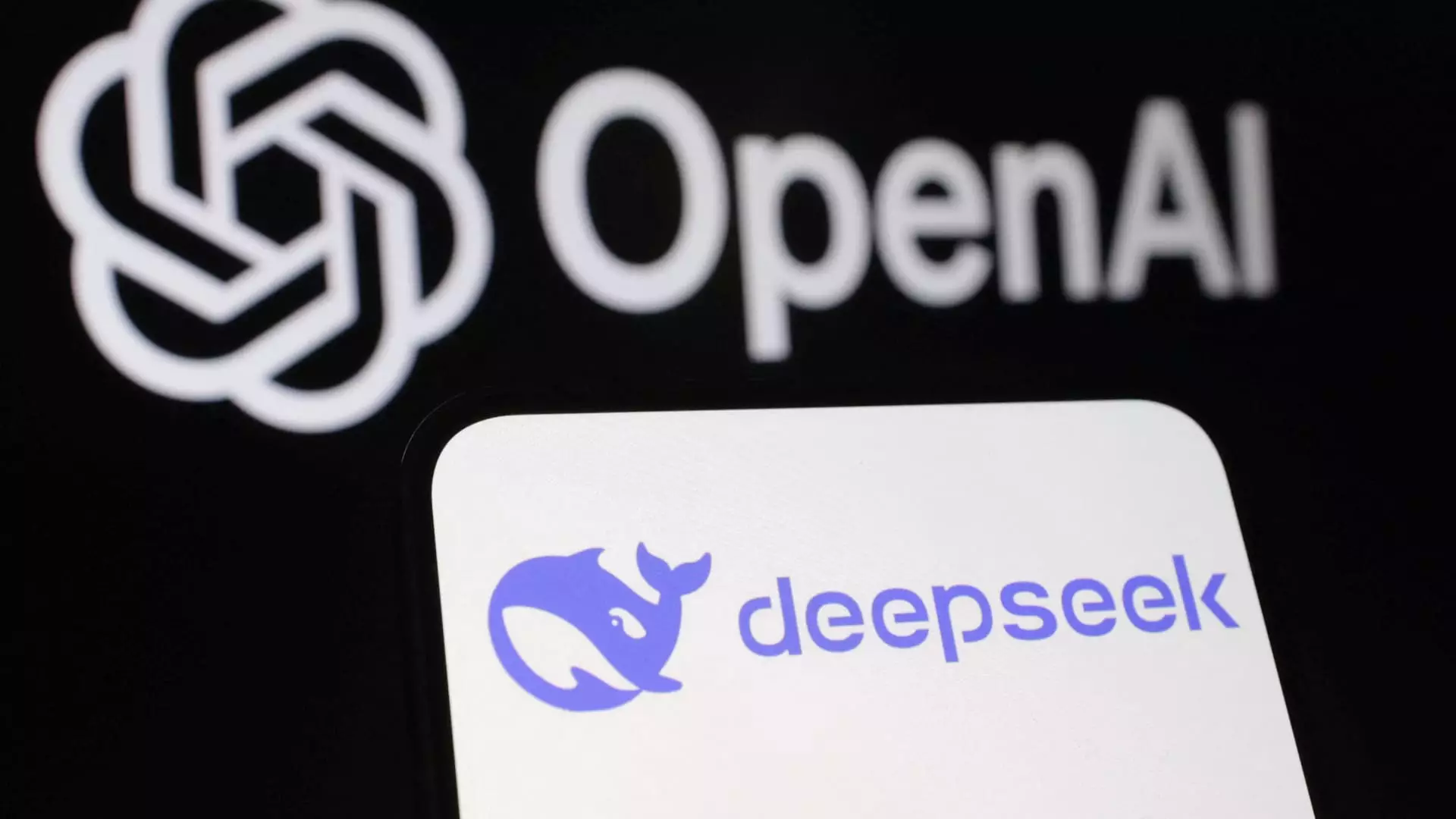The landscape of artificial intelligence is witnessing a seismic shift with the rise of DeepSeek, a Chinese startup that recently captured the attention of investors and analysts alike. Founded in May 2023 by Liang Wenfeng, DeepSeek’s rapid ascension has caused ripples throughout the U.S. technology sector, raising questions about the substantial investments made by America’s tech giants in AI development. The speed of DeepSeek’s progress and its potential cost-effectiveness have not only shaken confidence in traditional AI leaders but have triggered a notable sell-off in tech stocks.
DeepSeek’s introduction of its R1 model, a large language model that reportedly surpassed OpenAI’s latest version in various independent assessments, has been central to the recent turmoil in the technology sector. The remarkable achievements of this startup, including the development of its models in just two months for a mere $6 million, have drawn attention to its unique approach. Unlike its competitors, DeepSeek emphasizes reasoning capabilities. This innovation allows its models to provide answers through a “chain of thought,” enhancing the accuracy and relevance of responses. Such a feature could dramatically change how users engage with AI, potentially leading to wider adoption.
The Ripple Effect on U.S. Tech Stocks
The attention around DeepSeek has catalyzed a significant sell-off in U.S. tech stocks, particularly affecting companies like Nvidia, which has enjoyed a leading position in the AI hardware space. On a particularly tumultuous day, Nvidia experienced a staggering drop of over 12%, marking one of its worst trading days since early 2020. The anticipation surrounding DeepSeek’s capabilities has led to fears that it may undermine U.S. companies’ competitive advantages, prompting investors to reevaluate their holdings in tech stocks reliant on AI infrastructure.
As the news of DeepSeek’s achievements spread, so did skepticism regarding the hundreds of billions of dollars being funneled into AI development by established American tech firms. The surge of optimism for DeepSeek’s R1 has forced investors to reconsider whether such immense expenditures will yield the transformative results projected by these companies. This analysis has far-reaching implications beyond the immediate stock market reaction.
The credibility of DeepSeek has been bolstered by comments from influential figures within the tech industry. Alexandr Wang, CEO of Scale AI, recognized DeepSeek’s advancements, comparing its performance with the best products from U.S. tech giants at a time when concerns about supply chain bans on AI processors were prevalent. His remarks at the World Economic Forum in Davos underscored DeepSeek’s position as a formidable competitor in the AI race.
Simultaneously, prominent venture capitalists, like Marc Andreessen, have praised DeepSeek’s recent breakthroughs. Andreessen’s excitement around the developments conveys a sense of urgency regarding the evolution of AI capabilities that transcends geographical boundaries. Such endorsements from respected figures can have significant implications for investor sentiment toward the startup and its potential to disrupt the current AI paradigm.
Market Reactions and Future Outlook
In the wake of these events, U.S. futures reflected investor trepidation about the future trajectory of technology companies. The turbulent market conditions signify a reconsideration of reliance on traditional players amid the emergence of inexpensive and highly capable alternatives like DeepSeek. As a result, several technology sector stocks and companies perceived as vulnerable to the rise of new contenders faced significant declines.
Ultimately, the consequences of DeepSeek’s breakthrough on the broader tech landscape depend on its ability to maintain its momentum and continue innovating. The startup must navigate an environment fueled by intense competition and scrutiny, particularly as it faces established players that might react with transformative tactics of their own. The unfolding drama surrounding DeepSeek emphasizes the rapidly changing dynamics in the AI sector, suggesting that future market shifts may be dictated by innovations that transcend previous benchmarks of success.
DeepSeek’s striking emergence has challenged traditional narratives regarding AI leadership and investment in the global market. By redefining performance parameters and establishing a cost-effective model for advancement, it has ignited new discussions about innovation thresholds within the AI industry. As technology continues to evolve at an unprecedented pace, startups like DeepSeek may well define the future face of artificial intelligence, creating a more competitive ecosystem that benefits both creators and consumers alike.

